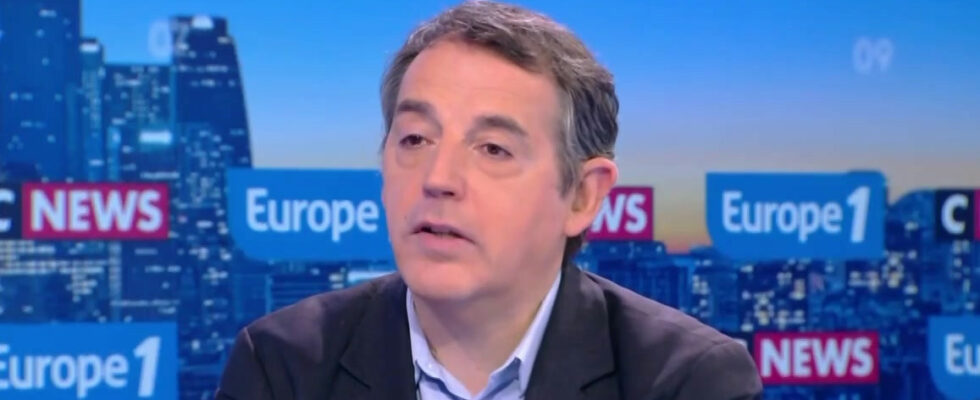Yanis Darras
modified to
9:27 a.m., January 4, 2024
The political scientist and director of the opinion department of Ifop, Jérôme Fourquet, was the guest of La Grande interview Europe 1-CNews. At Sonia Mabrouk’s microphone, he returned to Gérald Darmanin’s statements on the violence during New Year’s Eve, and believes that there is a “discrepancy between Darmanin and the population”.
The result is satisfactory for the Minister of the Interior, Gérald Darmanin. During New Year’s Eve 2024, around 745 cars were burned. This is more than in 2023 but much less than in 2020, when 1,541 cars caught fire. Facing journalists, France’s top cop described New Year’s Eve as “relatively calm.” Enough to “undoubtedly leave some of our fellow citizens perplexed”, faced with the number of cars set on fire, judge on the set of La Grande interview Europe 1-CNews, Jérôme Fourquet.
“It’s a bit as if it had become a form of ritual, a habit,” to have so many cars destroyed, continues the political scientist. “Certainly, this year, we are not at the peak of the low water level. But now, systematically, we have several hundred vehicles burned on New Year’s Eve, as if we had crossed thresholds” .
A “dumbfounded” population
Originally, the New Year’s Eve excesses began in Strasbourg, in the 1980s. Then, gradually, they spread throughout the territory, underlines Jérôme Fourquet. “These are news items that have taken hold and fuel what I call background noise, this feeling of a loss of control, of public powerlessness to which the French cannot resign themselves”, continues the director of the opinion department of Ifop.
And judges that now, “there is a gap between the Minister of the Interior and the population who, stunned, note that it was necessary to put 90,000 police and gendarmerie officers on the ground for the toll to be reduced to 745 vehicles burned,” concludes the political scientist.
